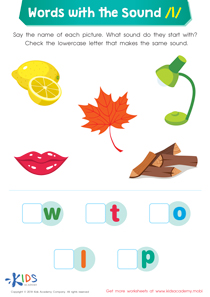Letter recognition Uppercase Letters Worksheets for Ages 4-8
11 filtered results
-
From - To
Introducing our engaging Uppercase Letters Worksheets designed specifically for children aged 4-8! These fun activities are perfect for enhancing letter recognition skills, helping young learners identify and differentiate uppercase letters effortlessly. Packed with colorful illustrations and interactive exercises, our worksheets promote visual learning and early literacy development. Kids will enjoy tracing, matching, and completing exciting letter games that reinforce their understanding of the alphabet. Each worksheet is thoughtfully crafted to encourage creativity and develop fine motor skills, making learning a delightful experience. Download now and watch your child flourish as they embark on their journey to mastering uppercase letters!
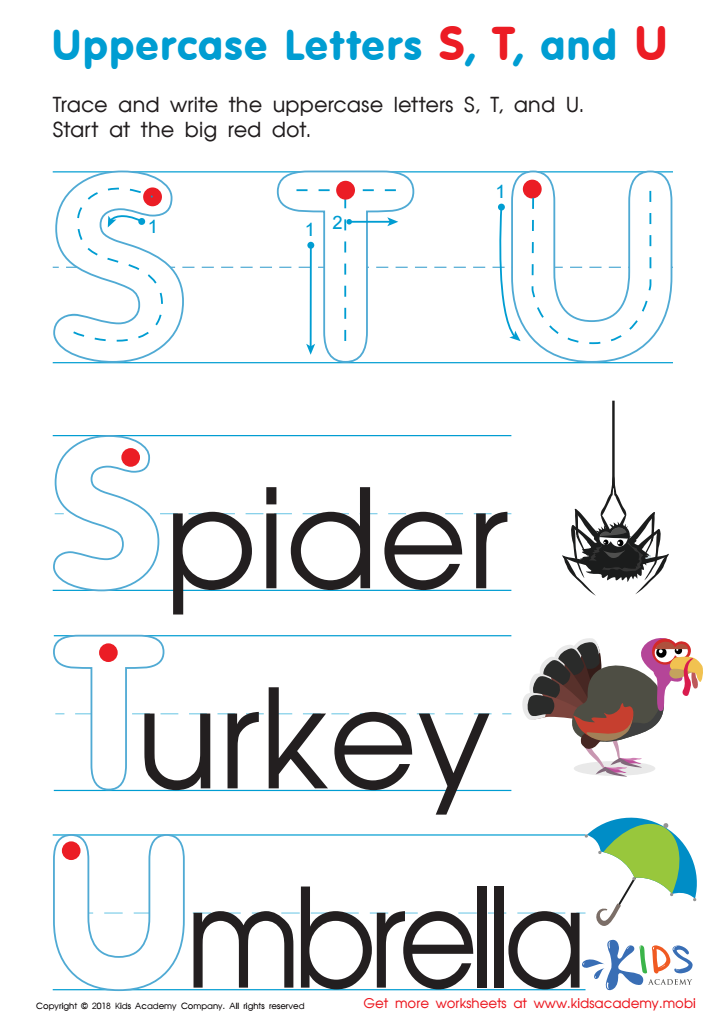

Uppercase Letters S, T, and U Worksheet
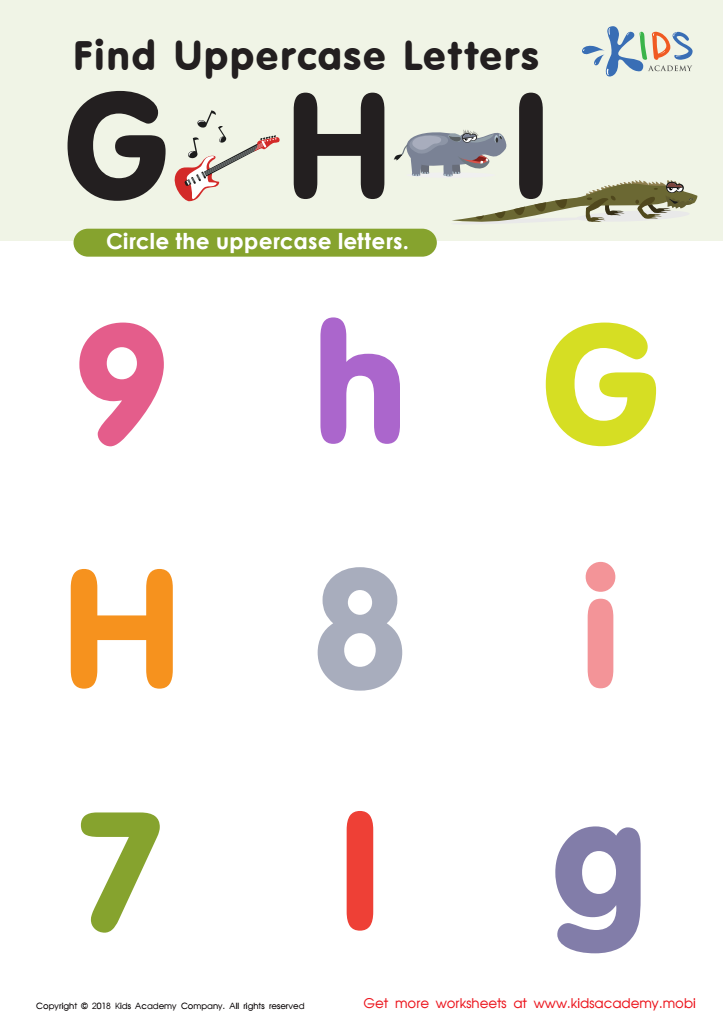

Find Uppercase Letters G, H, and I Worksheet
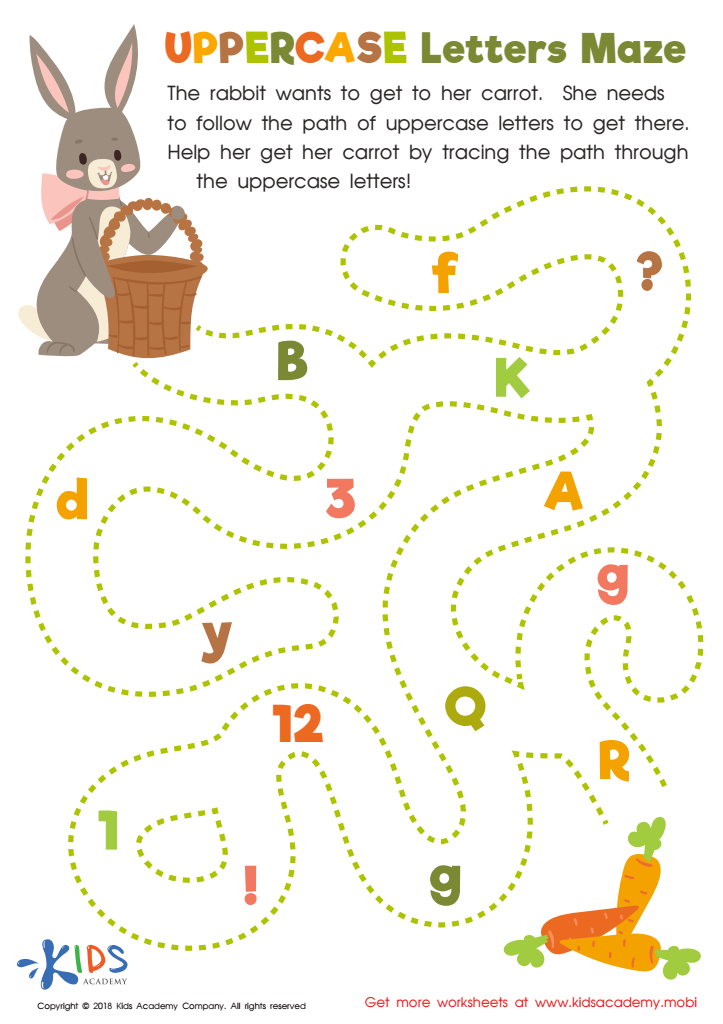

Uppercase Letters Maze Worksheet
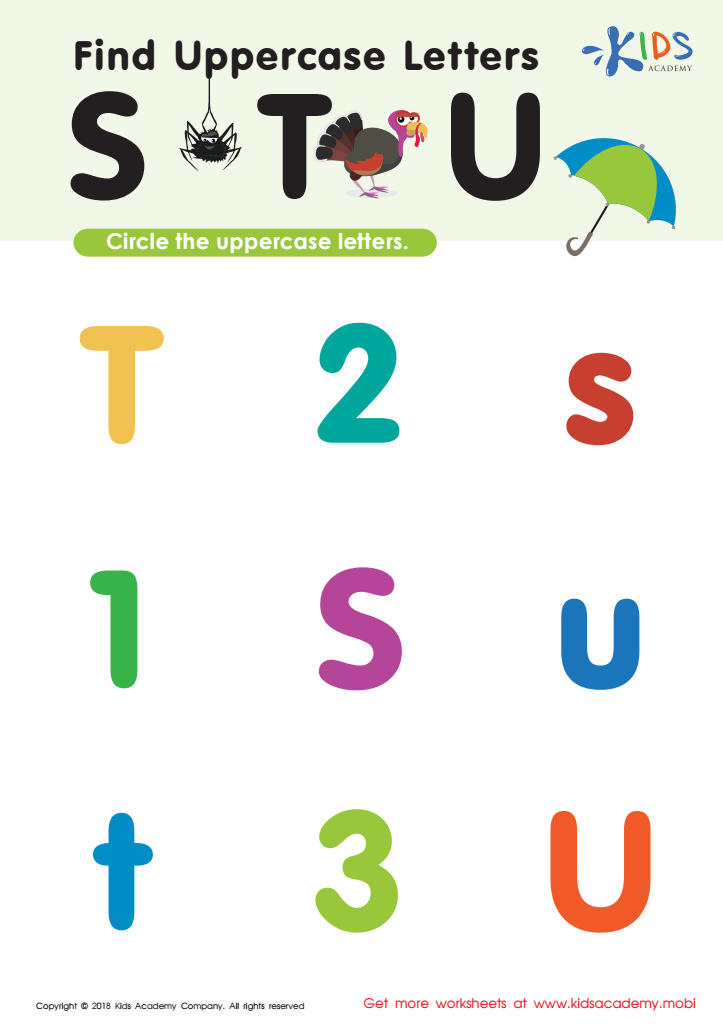

Find Uppercase Letters Worksheet
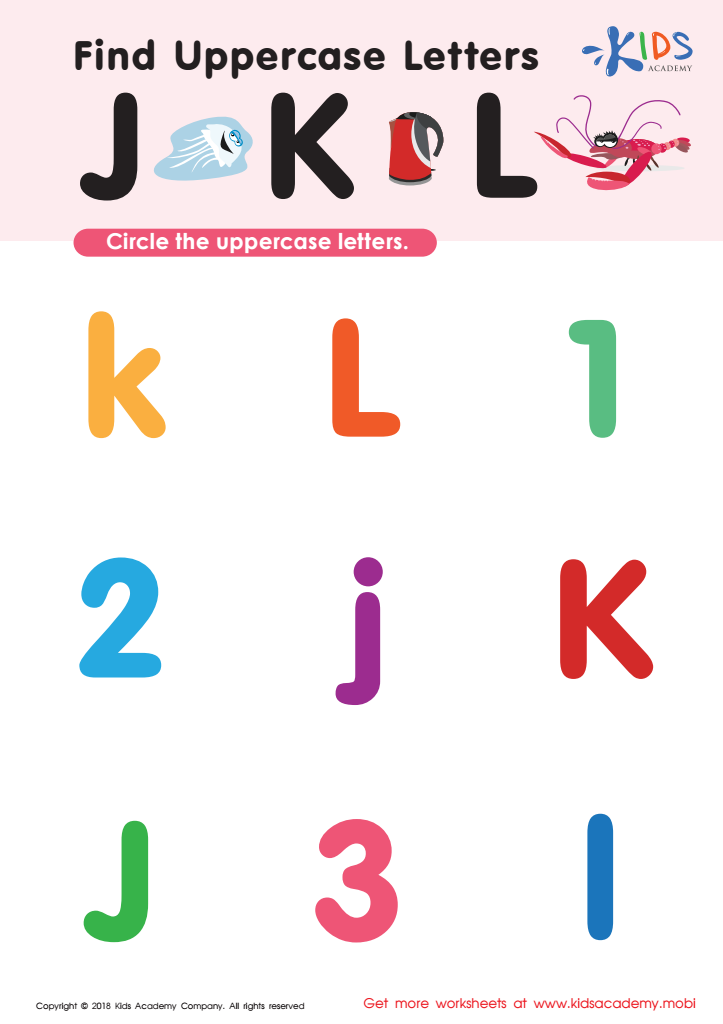

Find Uppercase Letters J, K, and L Worksheet
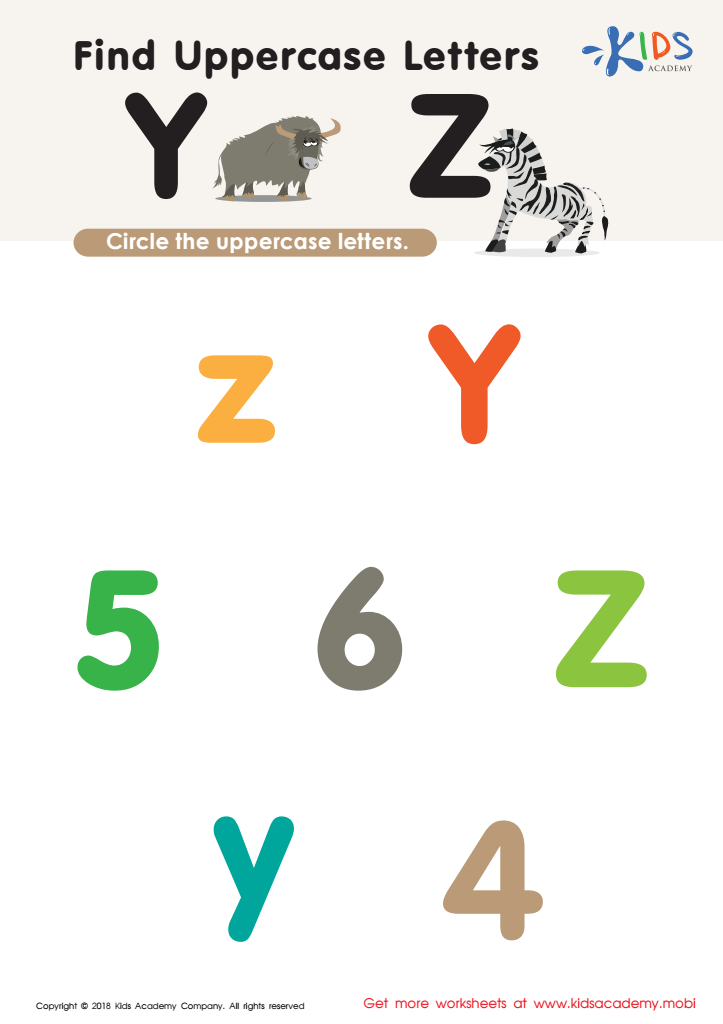

Find Uppercase Letters Y Z Worksheet
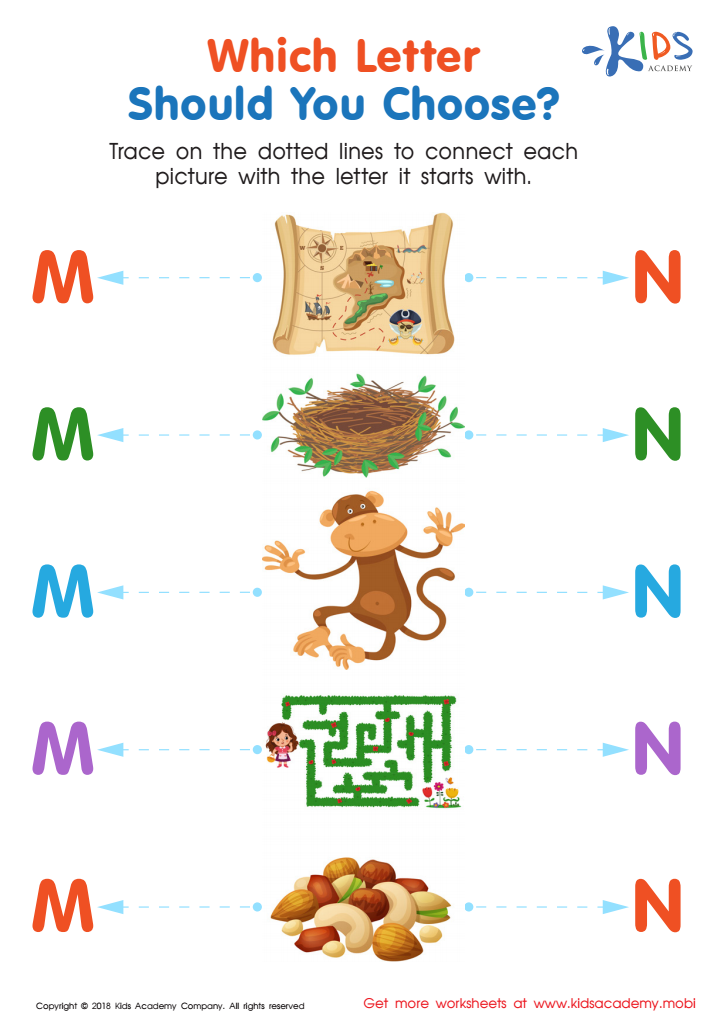

Which Letter Should you Choose? Worksheet
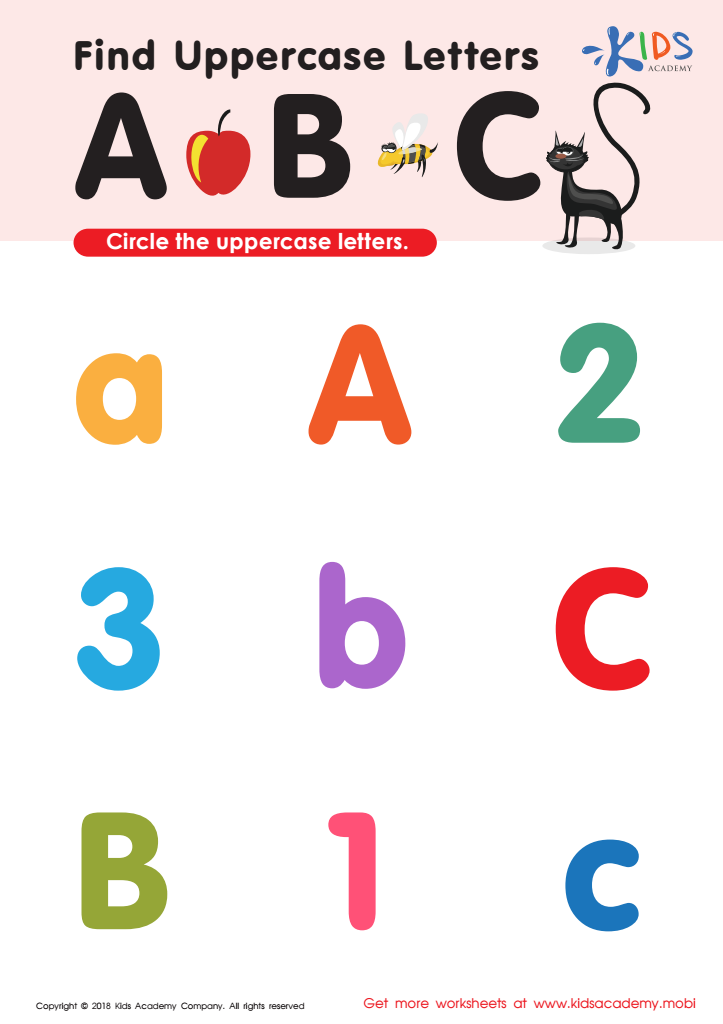

Find Uppercase Letters A, B, and C Worksheet
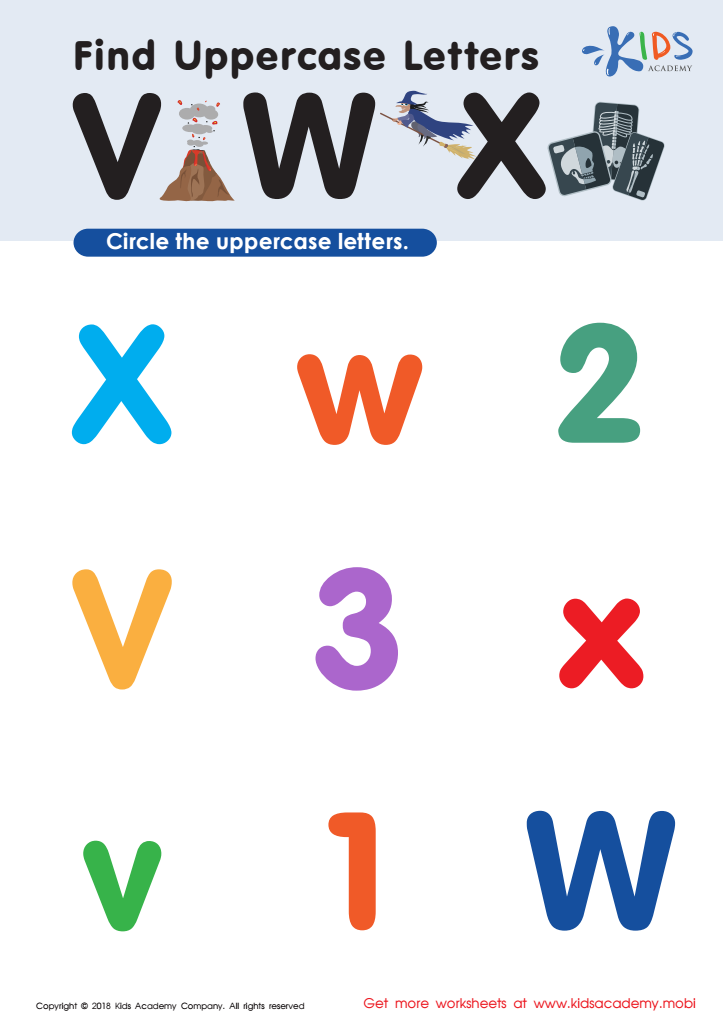

Find Uppercase Letters V, W, X Worksheet
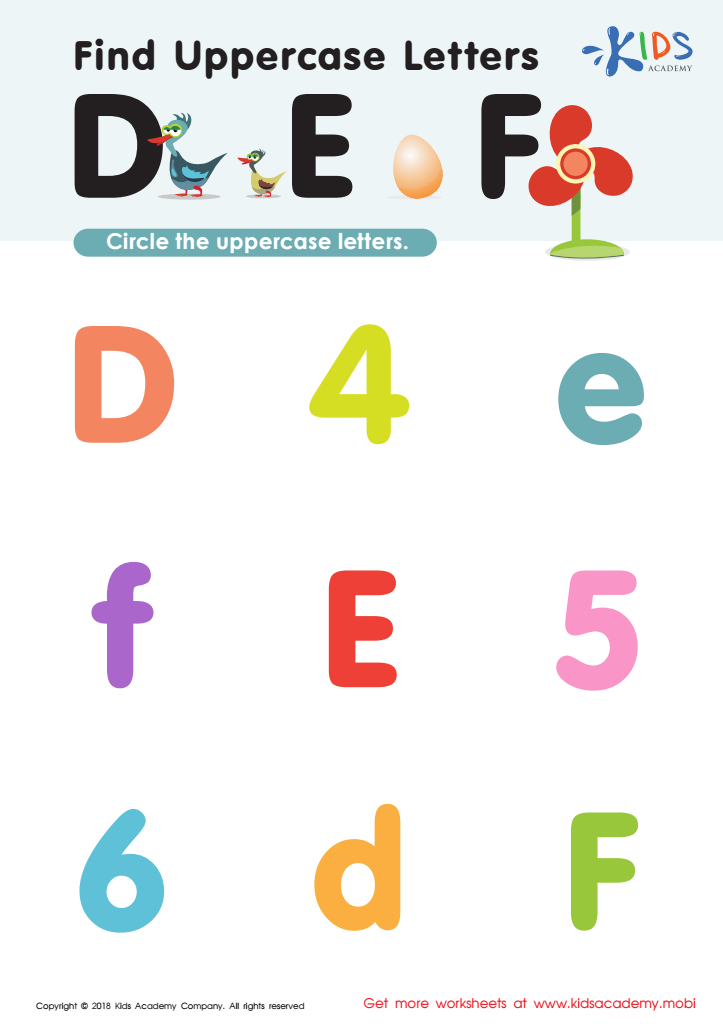

Find Uppercase Letters D, E, and F Worksheet
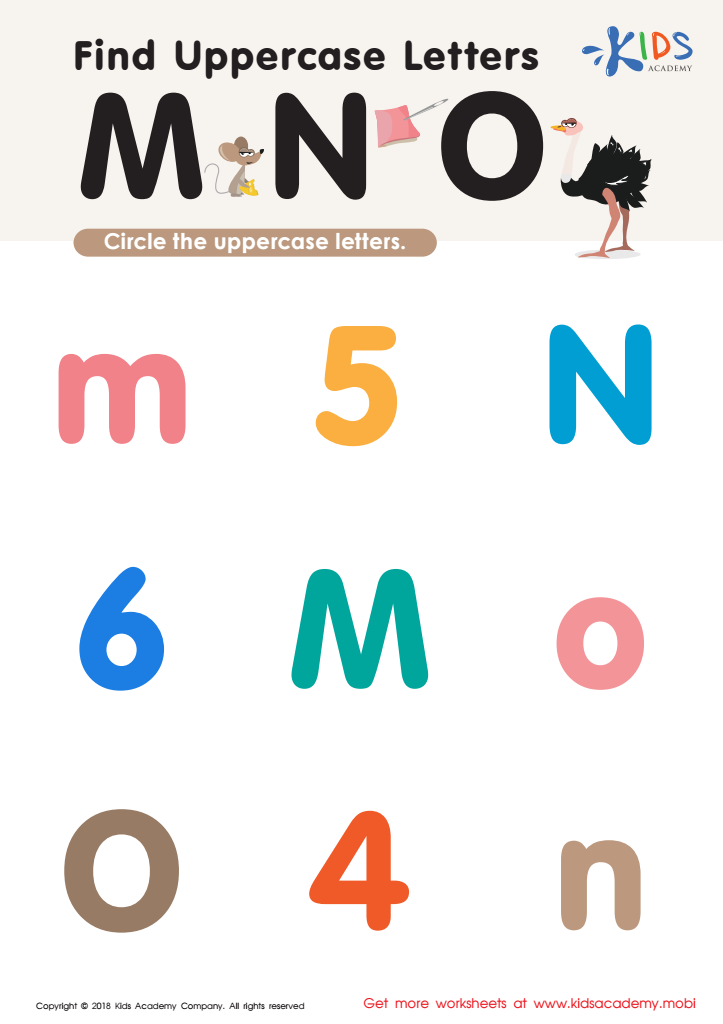

Find Uppercase Letters M, N, and O Worksheet
Letter recognition, especially uppercase letters, is a crucial foundational skill for children aged 4-8. This early literacy milestone supports various aspects of learning and development. Firstly, uppercase letters are prominent in printed materials, making them vital for children's ability to read and comprehend text. Recognizing these letters enables children to decode words, improving their reading skills as they progress through their educational journey.
Additionally, uppercase letter recognition fosters fine motor skills through activities such as tracing and writing, aiding in overall cognitive development. Young learners often see uppercase letters prominently in books, signs, and everyday environments, solidifying their importance. By mastering these letters early, children gain confidence, translating to a positive attitude towards reading and learning.
Moreover, understanding uppercase letters strengthens communication skills. Children learn how to form their names, which is often one of the first words they read and write, creating a sense of identity and personal achievement.
For parents and teachers, emphasizing uppercase letter recognition not only enriches literacy skills but also nurtures a love for learning, laying the groundwork for future educational successes. Engaging parents in this learning process furthers reinforcement at home, making it a collaborative effort vital to a child’s literacy development.
 Assign to My Students
Assign to My Students













